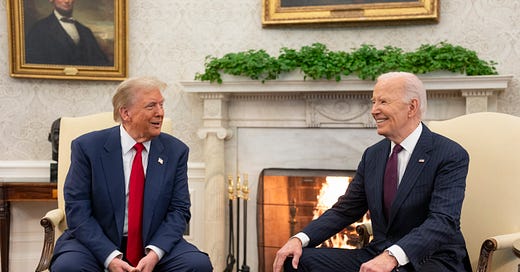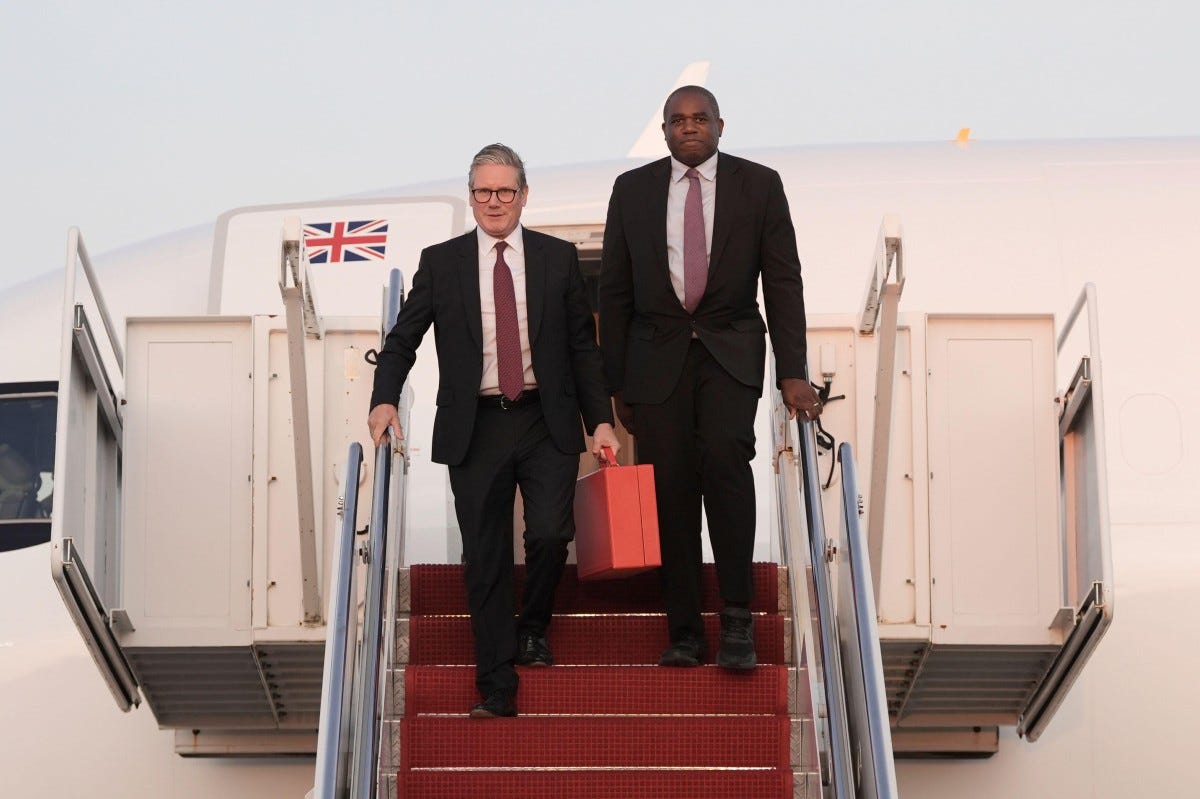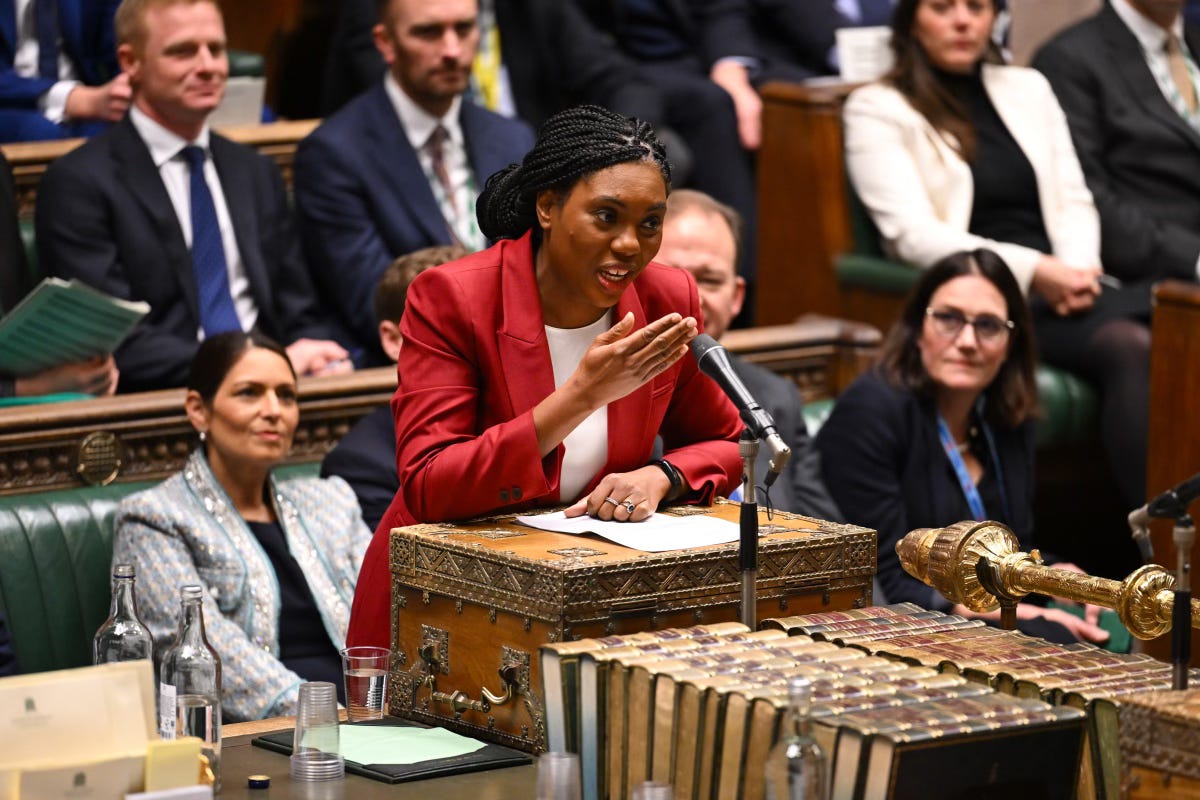Ukraine braces as Russia prepares massive Kursk counteroffensive in Biden's waning days
A 50,000-strong force is expected to bear down on Ukrainian positions in Russia as Trump assembles a Ukraine-sceptic cabinet.
A massive volley of missiles and drones was launched against Kyiv today as up to 50,000 Russian and North Korean soldiers close in on the Kursk frontlines.
While residents and officials in Kyiv hunkered down amid the bombardment, in the American capital as Biden welcomed President-elect Trump to the White House for the customary “peaceful-transition” discussion. While certainly a positive development in DC, that very transition may have serious implications for the future of Ukraine as a new foreign policy vision threatens to cede great swathes of Ukrainian territory to Putin.
The formidable Russian force bearing down on Kursk includes around 10,000 North Korean soldiers, according to officials at the Pentagon. Their direct involvement on the frontlines coincides with the ratification of a defence treaty between Russia and North Korea yesterday which commits the pair to back one another in military conflict and work to establish a “just and multipolar new world order”.
Following three months of Ukrainian occupation, the Russian counter-attack on Kursk threatens to dislodge and expel the incursion forces. Zelensky’s ambitious gamble has had mixed results thus far. Many Ukrainian troops have been lost on Russian ground and have been redirected from the crucial Eastern front, however, the operation has been credited with degrading enemy forces and morale while providing Ukraine a potentially lucrative “bargaining chip” - if it can be held.
Without a foothold in Kursk in the new year, the possibility of land swapping upon eventual negotiations would become null.
Trump’s return to the Oval Office has made such negotiations, whether Ukraine likes it or not, a distinct probability. So far, Trump allies have laid out visions for a ceasefire deal which would freeze the lines of control and acknowledge Russia’s claim to Crimea. While Trump has denied the proposals are his own, initial cabinet picks indicate his administration is keen for a territory-surrendering settlement which could potentially include all of the Russian-captured provinces.
Trump’s pick for National Security Advisor, Mike Waltz, has criticised the “blank cheque” given to Ukraine and voted against further military aid in Congress. Marco Rubio, Trump’s slated choice for Secretary of State, has changed his mind over the course of the conflict to align with the MAGA consensus, also voting against further military aid for Kyiv. Incoming Secretary of Defence, Pete Hegseth, has been a sceptic of arming Ukraine too and has alluded to favouring immediate negotiations.
While the new administration opens the door to diplomacy, Trump and his appointees cannot force the war’s end alone, as the fighting parties must come to that conclusion themselves. Zelensky has long maintained goals some would interpret as maximalist, vowing to restore Ukraine’s international borders including Crimea. Putin has not shown any indication of compromise either, as he has declared no peace can occur without control of all four “annexed” oblasts. However, hundreds of square miles have yet to be ripped from Ukraine’s hands in the Donetsk, Zaporizhzhia, and Kherson regions and thus Putin would need to continue the war - by law - until the entirety of these lands are conquered.
It’s thus in the interest of Putin to enter any potential negotiations with the strongest possible positioning. If he can retake Kursk and break through Ukrainian lines in Donetsk in the next months, the new Trump administration may pressure the Ukrainians into bending to Putin's annexation demand before the losses get any worse. However, if the Ukrainians can hold firm, they may be able to retain a crucial, albeit small, amount of leverage before any Trump talks.
ON REACTION TODAY
Gerald Warner
Starmer's anti-Trump bias spells big trouble for Labour and Britain
Dorian Bovay
PMQs: Badenoch fails to land a sucker punch
ALSO KNOW
Elon Musk to head “government efficiency” agency - Donald Trump has announced that Elon Musk and Republican ally Vivek Ramaswamy will head a new agency known as the “Department of Government Efficiency”. The agency will purportedly serve to eliminate wasteful government spending, however, conflict of interest questions have been raised as Musk has received billions in federal contracts over the years.
Health secretary threatens NHS manager sackings - Wes Streeting is pushing for “sweeping reviews” of NHS performance across England. According to him, failing hospitals have a crisis of management and government efforts must be directed to “raising the quality of leadership”. The reforms aim to boost productivity and efficiency by weeding out “rotten apples” in the profession.
Farming campaigners call for national strike - A first-ever UK-wide farming strike could begin Sunday as farmers across the country have pledged their support for the “Enough is Enough” pressure group. The week-long strike would aim to highlight the importance of British farming and garner public support to oppose the 20 per cent inheritance tax change announced in the budget last month.
Haiti: Flights from US halted as unrest worsens - The appointment of businessman Alix Didier Fils-Aimé to the Premiership in Haiti has done little to quell the nation’s spiralling violence as gangs ratchet up their attacks across the country. Gunfire targeting flights in bound from the US has led American authorities to impose a one-month halt on flights to the troubled nation.
FIVE THINGS
Curated by the Reaction Team - Alexandra Luca
Welby is gone—but trust in the Church is broken beyond repair, writes Martyn Percy in Prospect
US election pollsters were actually a lot closer than people think. John Curtice in The Conversation
Lebanon’s heritage is disappearing under Israel’s bombardment. Lydia Wilson in New Lines Magazine
Why does the NHS have a productivity problem? Laura Hughes and Amy Borrett in the Financial Times
Catherine Pearson reveals the unspoken grief of never becoming a grandparent in The New York Times







